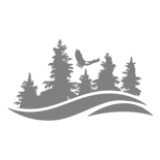

~Tribute to Dan Drew, By Tony Adame
"As leaf subsides to leaf So Eden sank to grief As dawn goes down to-day Nothing gold can stay." Robert Frost
Of the 12 legends inducted into the Mendocino College Hall of Fame's inaugural class Saturday night, the one that may have meant the most was also the one that was missed the most. Dan Drew, who died in August after battling ALS (better known as Lou Gehrig's disease) for almost five years, was inducted posthumously after giving 29 years to Mendocino College as a professor, coach, and administrator. Drew, who died at 58 years old, lived a life that seemed ripped from the pages of a Phillip Roth novel. His was a true tale of Americana. He was born in 1947 in San Francisco a city he loved his whole life and despite being a bit undersized he was a standout football player at Archbishop Riordan High School and then went on to play linebacker at the College of San Mateo and Division I-A University of the Pacific.
After his time was done at Pacific, Drew taught and coached at Lodi High School, and in 1976 he made his way to Mendocino College, teaching health sciences classes and coaching football and baseball before moving on to be an athletic director. Later in his tenure at Mendocino, he began teaching history courses, including one on the history of his hometown. "Here was a guy who helped people, who did things to make people's lives better," said Mendocino College athletic director Skip Hunter. "He was a terrific person, and he didn't have an enemy in the world. Honest to God I never heard anybody say a bad word about him." Once, Drew asked Hunter to join him for a game of racquetball, a sport Hunter had never attempted. "Dan didn't look like an athlete, and I've always considered myself an athlete," Hunter said. "And it takes a lot for me to get frustrated. I thought that since I'd played tennis before, how hard could it be?" Hunter soon found out. "Dan killed me," he said, laughing. "I don't think I even scored two points. He was quick, aggressive, but he never talked down to me when we were playing. He kept teaching. He wanted me to get better."
As athletic director for the Eagles, Drew made a couple of significant moves that changed the sports landscape at the college for the better. In 1991, Drew hired Kevin Smallcomb as an assistant baseball coach for the Eagles. two years later Smallcomb assumed the head coach job and in 11 seasons won 250 games and had just one losing campaign. Smallcomb was also named the 1996 California Community College coach of the year. In 11 seasons as the Mendocino College head coach, Smallcomb won 250 games and had just one losing season before taking the head coaching job at the University of Northern Colorado. "I came to Ukiah jobless in 1991 and Dan Drew hired me as an assistant coach," Smallcomb said in a 2005 interview. In 1993, Drew initiated the move from part-time to full-time for the head football coach, a move necessary to keep Mendocino competitive in the ultra-talented California junior college system.
It seemed as if Drew could do no wrong, which made me skeptical. As a reporter you always try to get both sides of the story, taking the good with the bad. With this particular story, there was only one side. Drew, people told me, was loyal. Drew was trustworthy. He helped change and shape young people's lives for the better. Still, I looked for another angle. I felt that maybe some of the people were succumbing to nostalgia and shining over any rough spots out of respect for his memory. Nobody, I believed, could be this well liked. So I kept digging, and eventually I found another angle. Incredibly, it came from Drew himself. In late 1996, Drew wrote a letter regarding an underground student newspaper at Mendocino College called The Eagle. At the time Drew wrote the letter The Eagle was fighting a first amendment battle with groups that had been illegally removing the publication from circulation drops and subscribers mailboxes. At the same time there were also several incidents involving teachers and student groups having copies of flyers advertising for certain classes and groups taken down or destroyed. I found Drew's letter archived on the Internet with a batch of letters regarding the paper's plight. It wasn't hard to figure out what side Drew was on. "I got up this morning to a beautiful day," Drew wrote. "On the way to school I voted. When I arrived at school I went to my mailbox and picked up, among other things, an edition of the Eagle...these simple things made me feel good." Drew goes on to write that the controversy surrounding the newspaper, and the fliers, had cast a pallor over an otherwise pleasant fall, and rightly compares the acts of censorship by the guilty parties to censorship in Germany in the late 1930s and the McCarthy era of the 1950s. "Are we in a time warp?" Drew wrote. "Why were these publications removed? Is someone really that afraid of freedom of expression? "It is these questions which trouble me much more than whether or not process has been followed. But today, everything seems much better. I was able to cast my vote for president and read my Eagle without feeling unpatriotic. I hope this feeling continues! What a great country we live in!" And what a great life this man lived.

